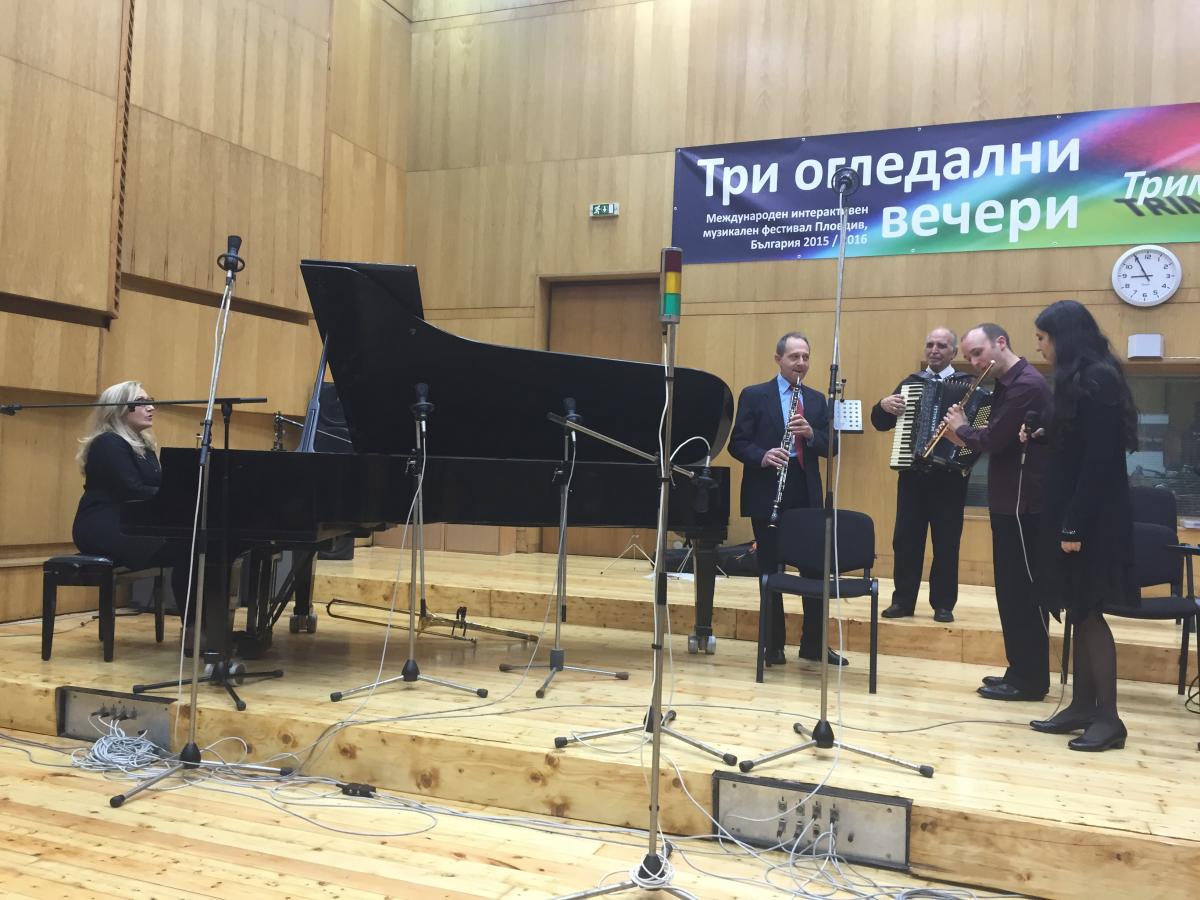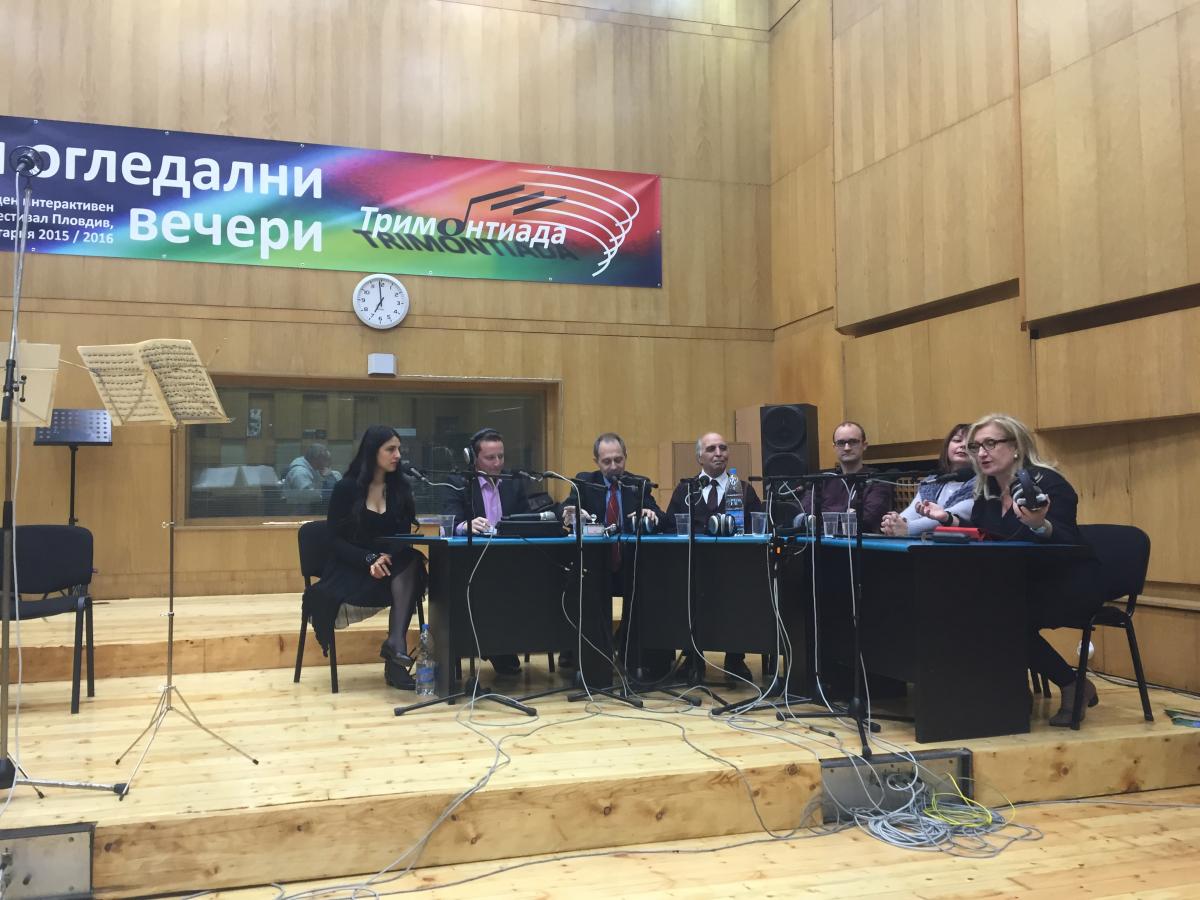One of the most powerful things about music is the way it brings people together. Some people call it a “universal language,” and though I don’t 100% agree with that for several reasons, there is no denying that music can truly facilitate positive interactions between people and groups that might otherwise never see the other beyond a passing glance. I had a wonderful experience of this phenomenon last night at a live radio broadcast of the Bulgarian National Radio – Plovdiv. I had been invited by a host, Misho Grablev, while doing an interview for him earlier in the week about the “16 Days of Activism against Gender-based Violence” campaign that the organization I have been volunteering for is participating in. Friday’s event was part of a music festival, Trimontiada, directed and moderated by pianist and Plovdiv native Galina Vracheva.
Seated behind an L-shaped table dripping with mic cables were Grablev, Vracheva, the four guest performers, and a seventh person whose name and role I did not catch. Two recording engineers spied on everyone from a glass window at the back of the stage. The guests – Philipph Jundt (CH/KR, classical flute), Dimitar Angelov (BG, folk accordion), Noam Vazana (IL/NL, singer-songwriter), and Plamen Prodanov (BG, classical oboe) – were each interviewed and given a chance to perform. I understood the conversations that took place in English and German far better than those in Bulgarian, so I will regretfully only really be able to talk about those parts of the event.
Swiss flutist Philipph Jundt currently performs and teaches in Seoul, South Korea. Seoul seems to be a current hotbed for young classical musicians; at least in NYC, many of the flutists I have encountered at conservatories and masterclasses trained there. Jundt says he likes Seoul’s growing classical music scene because its culture gives him a great deal more musical freedom than he might have in Western Europe. He gave the example that, were he in Germany, he wouldn’t be able to make the same use of vibrato and dynamic contrast while performing Bach as he now can. After reading many books about playing Bach, he has concluded that the current “rules” regarding the composer’s works are really just a temporary and restrictive trend.
As a performer, I am still in the process of deciding how to play Bach. I’ve been told it’s a lifelong process, which I don’t mind – Bach is simultaneously incredibly simple and incredibly complex, so there is definitely more than a lifetime’s worth of music and musicality to absorb. Like with any music, though, I think it would be dangerous if there were only a single correct version. If everybody needed to play his works in exactly the same way, why should there be more than one flutist, especially since that person’s performance could be distributed globally via recordings? Or, why have any flutists at all, since that single way of playing could just be programmed into a computer? Too much attention to what is “correct” rather than what is “musical” erases the humanity from performance, especially since what is “musical” can change based on so many factors external to the score.

Vazana’s creative solution to melding her various musical interests and talents is inspiring to me as I consider how to combine my own. Unfortunately, most flutes require two hands to play more than a limited range of notes, so simultaneously performing multiple instruments might not be the solution I seek. But surely there must be something I can do…
At the program’s conclusion, Vracheva sat at the piano and the four guests crowded around a floor mic to perform an improvisation. It was pretty incredible to see such different musicians (different by generation, genre, and geography, among other things) making music together. It’s definitely something I want to see again.
